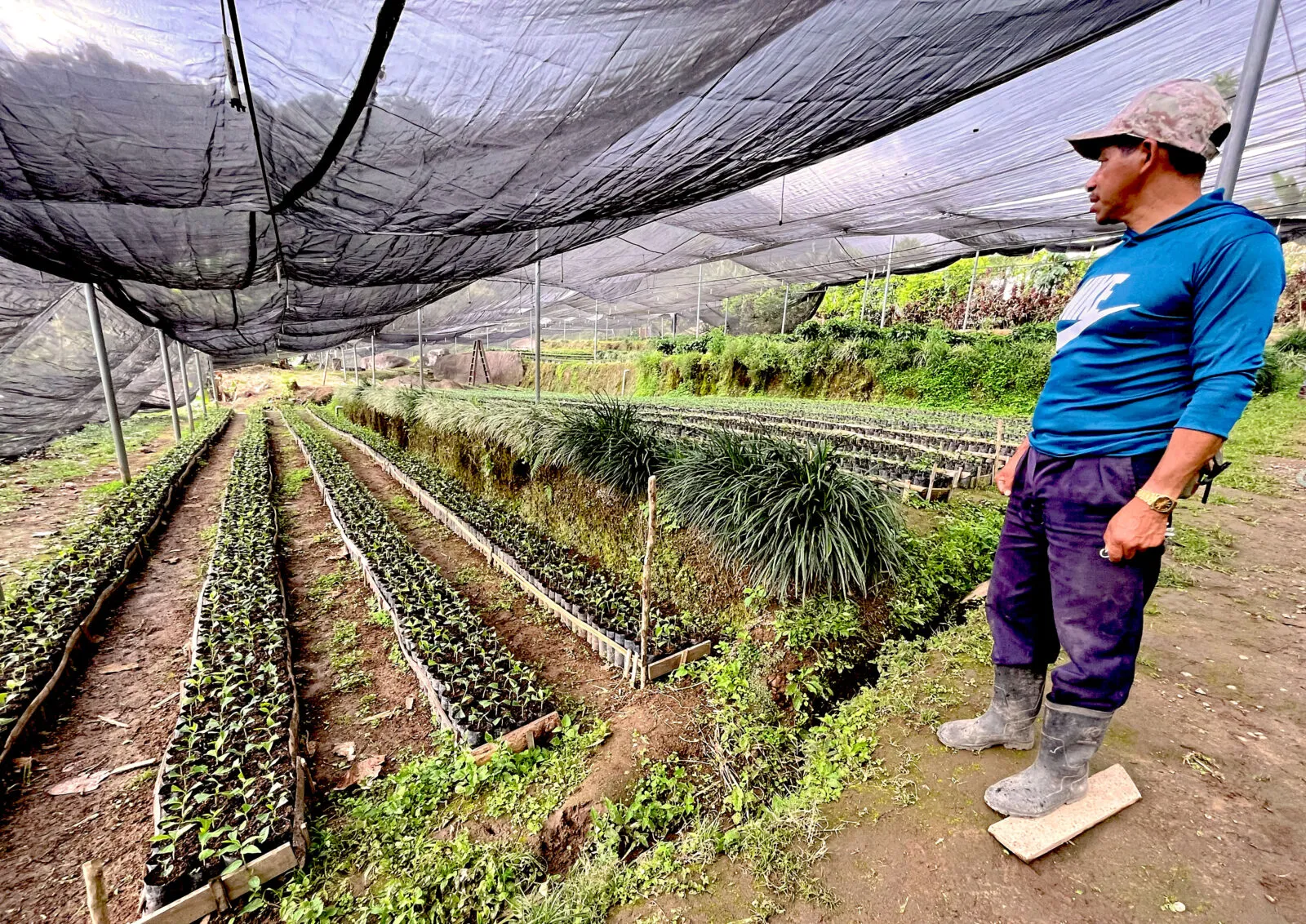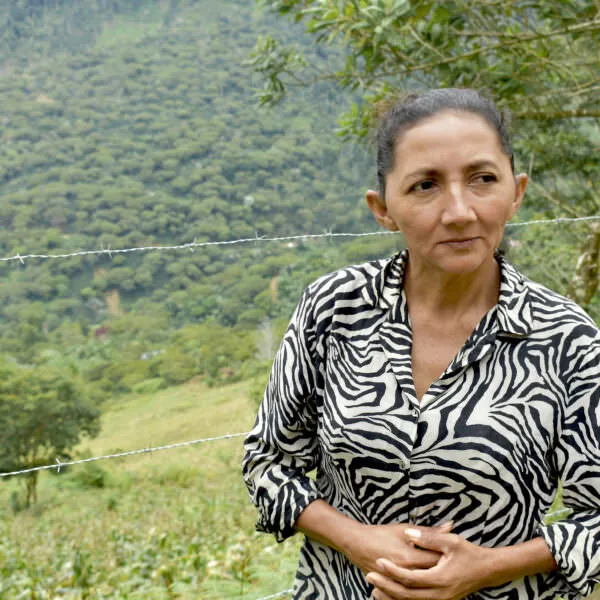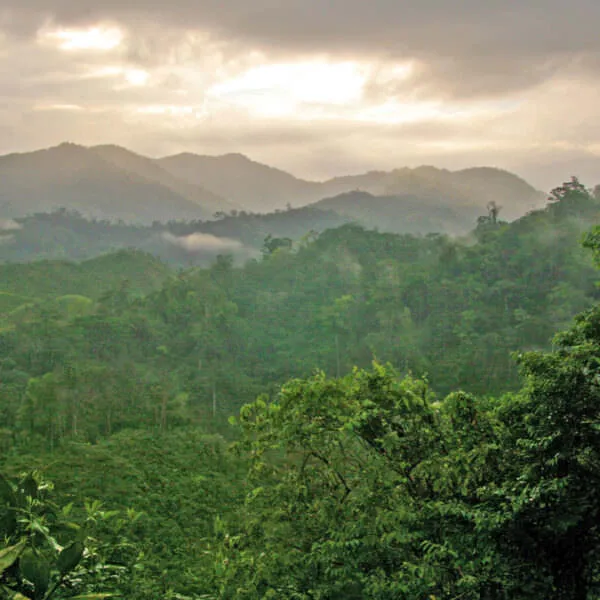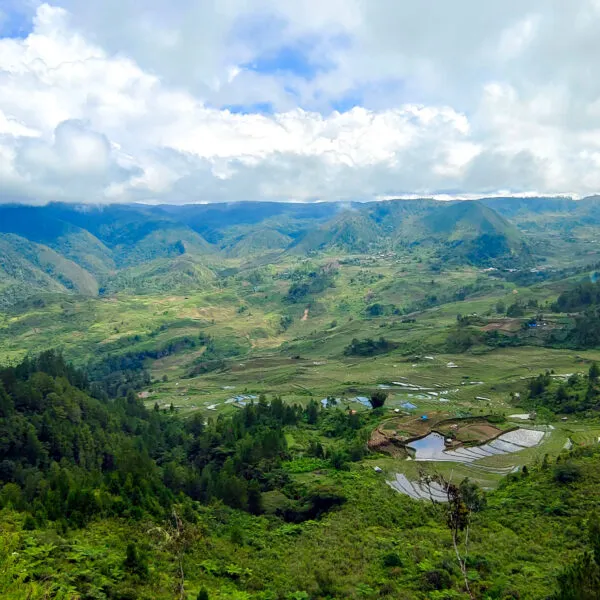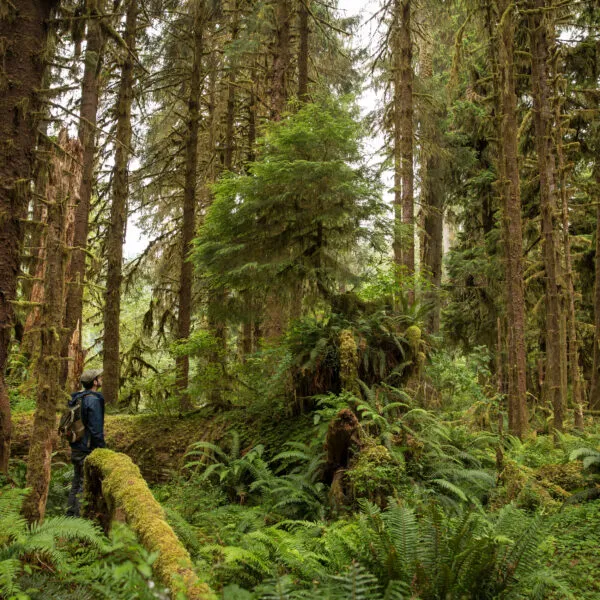If your coffee comes from Chiapas, Mexico, chances are it was harvested by migrant workers from Guatemala. It has been this way for decades: Coffee farms in Mexico’s southernmost state depend on labor from their neighbors across the border and coffee workers in Guatemala find more plentiful opportunities here in Chiapas. Many workers live in Guatemala’s northern state of San Marcos, which means they can go home for a weekend during the harvest to visit family and deliver earnings.
But here as in all parts of the world, migrant workers are vulnerable to exploitation, having little legal or financial recourse should an employer harass them, fail to pay them full wages, or commit other human rights abuses. That’s why the Rainforest Alliance certification program includes provisions to protect the rights of workers, both seasonal and permanent. We talked to migrant workers on two Rainforest Alliance Certified farms in southern Chiapas, Laguna Prime and Guadalupe Zajú, to get a sense of their experiences on certified and non-certified farms.
Reliable pay
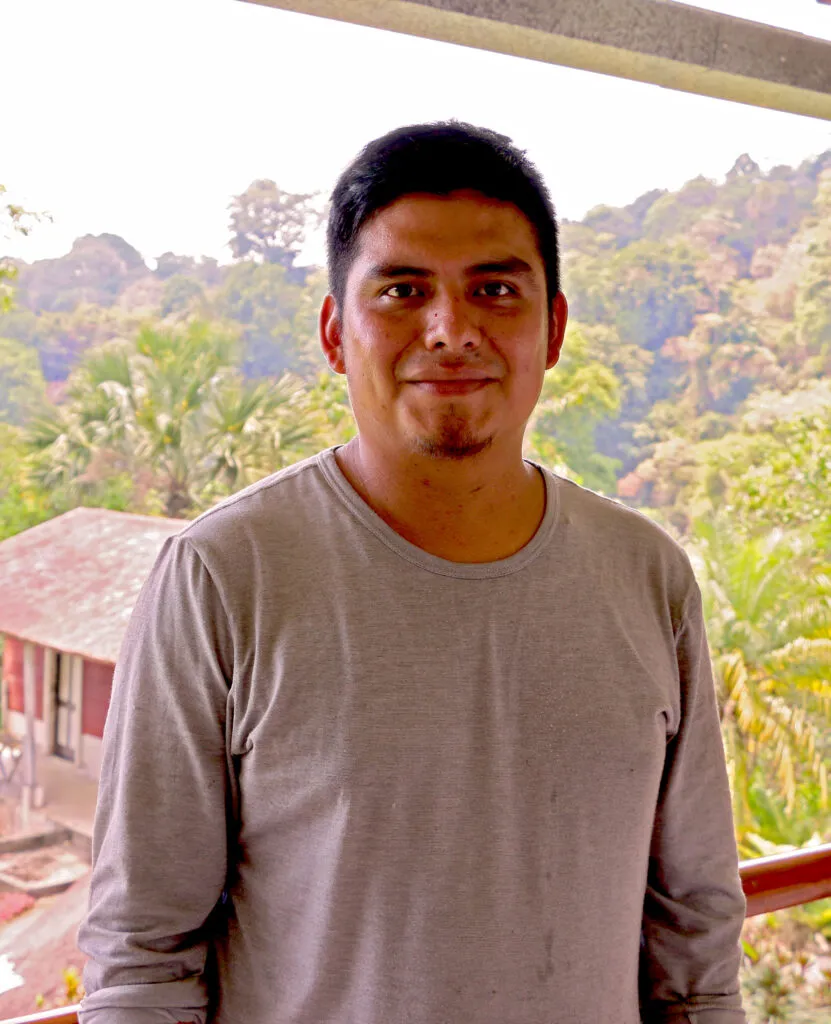
When Carlos Humberto Ramírez Solis started traveling from San Marcos, Guatemala, at age 18 to work on coffee farms in Chiapas, he was following in his father’s footsteps: His dad had supported a wife and eight children this way. Ramírez first began working seasonally, wherever he could find employment, but he wasn’t always compensated as promised. “I worked on farms where the pay is delayed, or they pay you only a part of what you’re supposed to get, or they take money out for this thing or the other,” he said. Whereas on the Rainforest Alliance Certified farm, Guadalupe Zajú, he said, “we are paid on a fixed schedule and it’s always (the amount) we’re supposed to get.” His seven-year-old currently attends the farm’s primary school, and will likely attend secondary school here, too. His hope is that she will take her studies even further. “I want her to be able to do what I couldn’t.”
Access to medical care
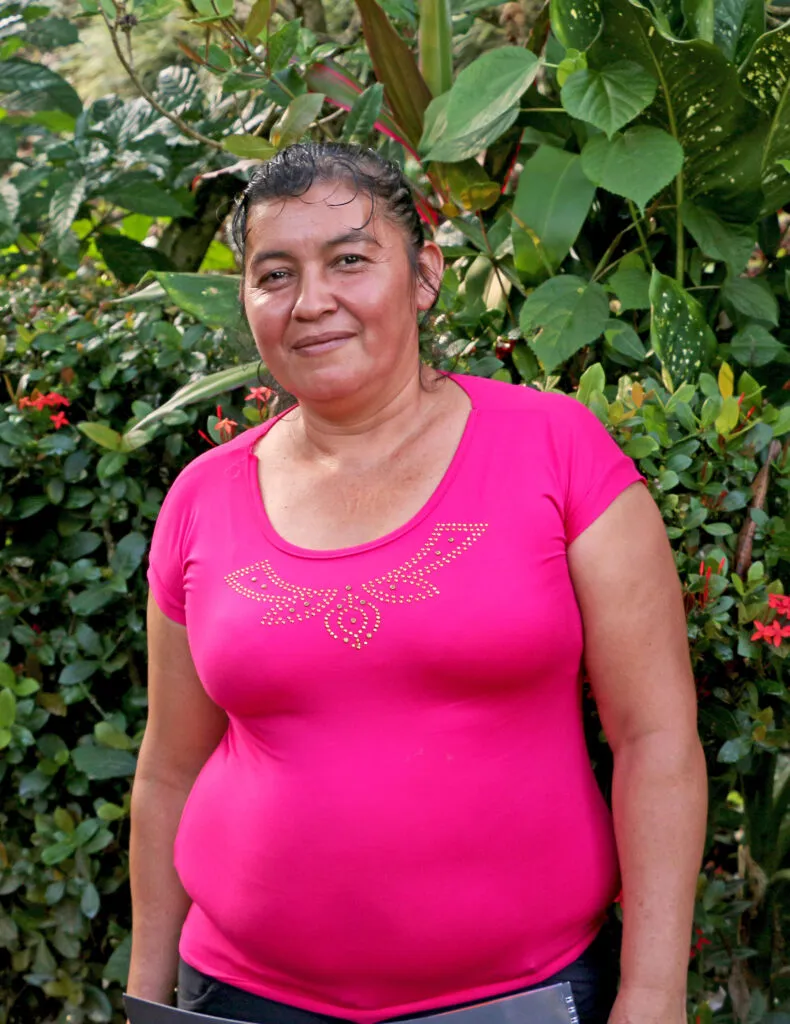
Aura Dianet Maldonado started coming to Mexico more than 20 years ago, after coffee work dried up in her native Retablo, Guatemala. Over the course of two decades, she’s worked on both small-scale family farms and large coffee estates—and of all of them, she most likes working on Laguna Prime, a Rainforest Alliance Certified farm. “We don’t want for anything here—not food, not water, nor electricity. And if someone gets a cold or flu, they take us to the doctor in town. They drive us and wait for us, or they will even go into the clinic with us.” She said a doctor from the clinic comes to the farm to give talks on subjects like family planning, women’s health, and more. With her earnings, she’s sending her younger son to study for his bachillerato (Mexico’s non-compulsory second stage of high school for students 15 to 18 years old). Her older son, now 21 and married, works on Laguna Prime as well.
Worker housing

Because San Marcos native Santiago Rodas’s job is to maintain equipment on the grounds, there is year-round work for him on Guadalupe Zajú if he wants it—and he does. One thing Rodas, who has a wife and daughter, particularly likes is the housing. “Families have their own section, and single men are in a different area. The bathrooms are divided, too: There are eight for women and nine for men,” he said. “In contrast, on other farms, men and women are not separate, and sometimes there aren’t showers at all—you have to go to creeks or rivers to wash. I’ve seen it!” He added, “And on farms like that, you work harder for less money. They exploit you. Here, they pay us what the law requires.”
Education
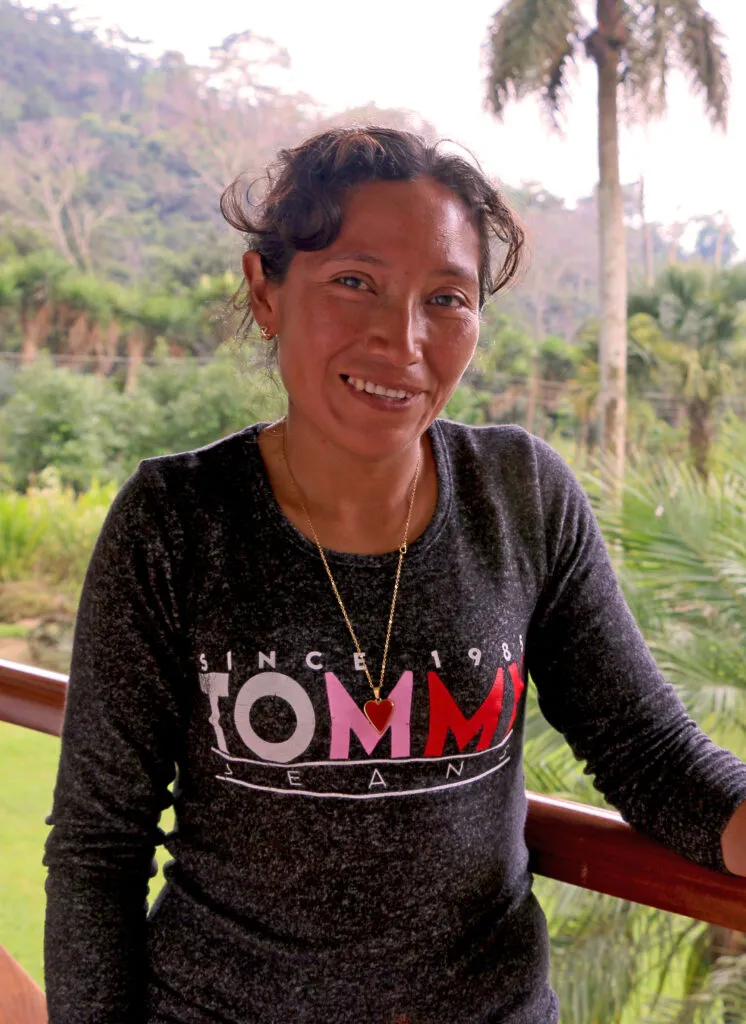
When Nely Morales Zunún’s husband died and left her with four small children to support, she had no choice but to leave her home in Tacaná, Guatemala, to seek work in Chiapas. Once she found employment at Guadalupe Zajú, she sent for her three youngest children, in part because she saw that they could attend school right here on the farm, on a schedule that coincided with her work hours—a boon to any working mom. Her oldest son, a teenager, opted to stay with his grandmother and friends back in Tacaná, but Morales hopes he’ll come to Guadalupe Zajú when he’s ready to work. But, she added, “he can’t until he’s 18 because they don’t hire minors here.”
Food
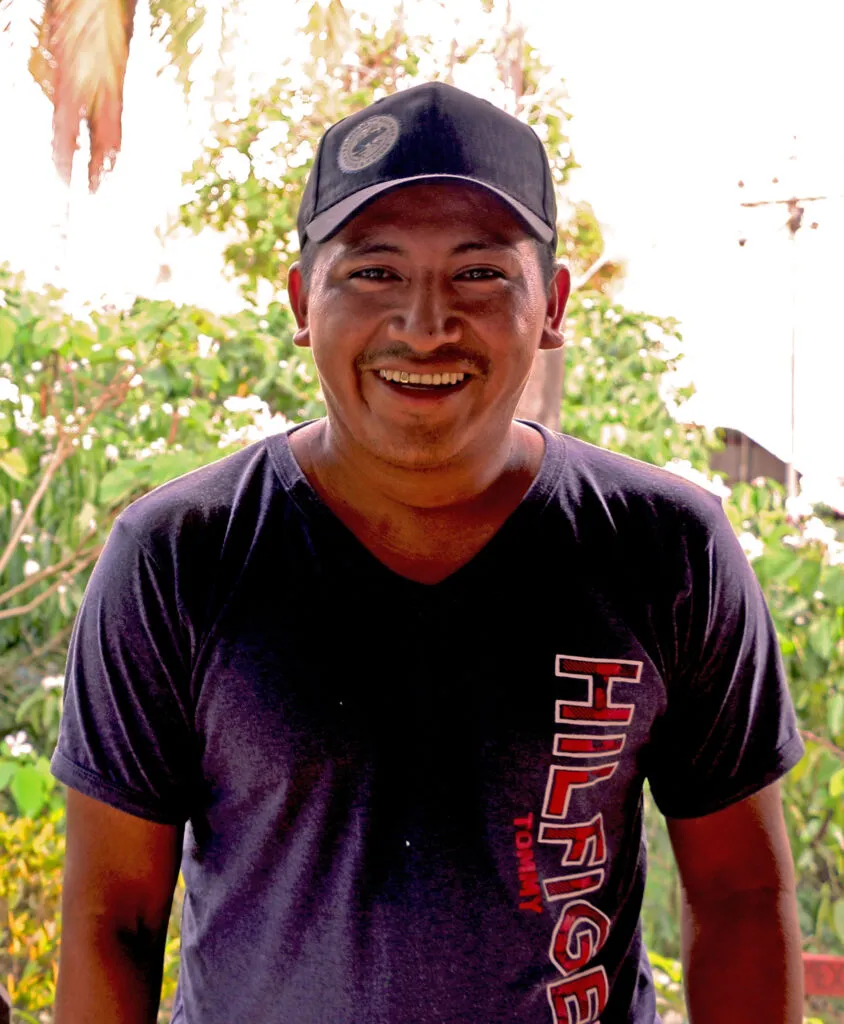
Walter Eulícer Pascual Ramírez jokes that he comes to Laguna Prime to get some rest. At home in El Quetzal, San Marcos, work is so scarce that he must wake up at 3 am to catch the bus to the nearest possible job, whereas here at Laguna Prime he rolls out of bed at a relatively leisurely 5 am. While he misses his family back home (“My children are my happiness, my reason for everything I do,” he said), he is comfortable at Laguna Prime. He is paid on a fixed schedule, and he has the afternoon free to play soccer, call his family, or hang out in his room, which he doesn’t have to share with any coworkers. The cafeteria, he said, provides tasty meals, too. How do they compare to his wife’s cooking? He laughed. “No comment.”
Preventing child labor
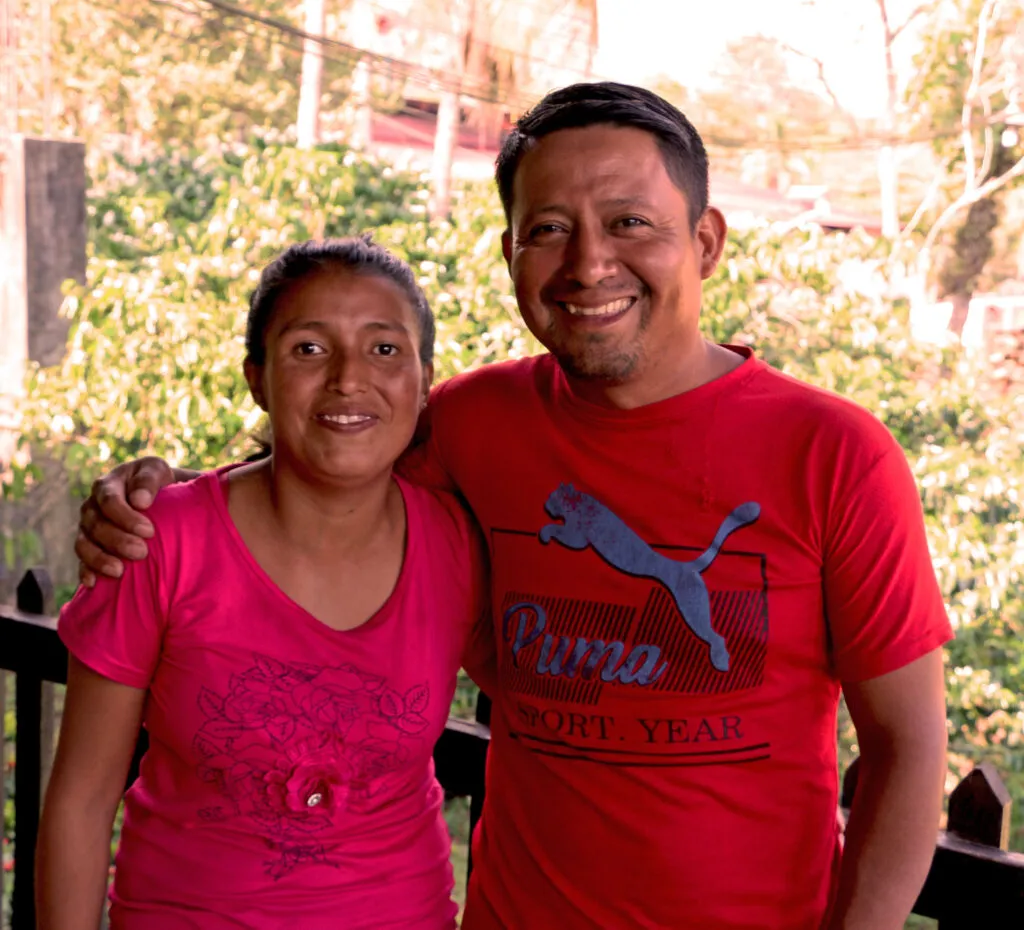
Daisy Marilú Verduo Gutiérrez, mom of two, grew up helping her parents on their subsistence farm in San Marcos, but she had no experience on coffee estates until she came here to Laguna Prime. Field managers here taught her the skills she needed to work in the plant nursery and the field, and even put her in charge of reporting any instances of child labor she might see during the harvest. “Sometimes (older teens) want to go to the field with their parents, but they can’t unless they’re 18,” she said. Verduo and her husband César Emilio de León work here for a few months out of the year. When they return home, they need to make their earnings stretch until their next season at Laguna Prime, because, according to de León, “Guatemala is beautiful, but there’s not much work there, unfortunately.”
